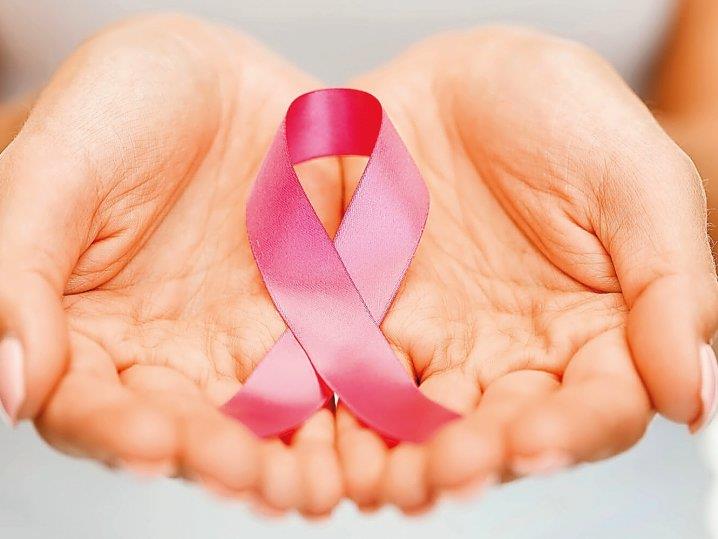
Qatar- Beyond wearing pink: Breast Cancer Awareness Month
A loop of pink ribbon has come to symbolise breast cancer awareness, and during October, the image of a pink ribbon can be found emblazoned on thousands of products--from cakes to cosmetics. But there's more to awareness than just wearing pink.
October is a Breast Cancer Awareness Month, an annual campaign to raise awareness of breast cancer risks, the value of screening and early detection, and treatment options available to those diagnosed with breast cancer.
Knowing the symptoms of breast cancer and regular screening is essential as early detection of the disease can save lives, according to experts.
Breast cancer is the most common cancer among women in Qatar and the second leading cause of death in women worldwide.
According to the Qatar National Cancer Registry at the Ministry of Public Health, 16.2 percent of breast cancer cases diagnosed in Qatar are in women aged between 45 and 49 years old.
As early detection can save lives, and to coincide with the Breast Cancer Awareness Month - Hamad Medical Corporation (HMC) and Primary Healthcare corporation (PHCC) has increased their efforts in promoting awareness importance of prevention, early detection, and treatment of breast cancer.
Throughout the month, a range of activities are organised aimed at enhancing awareness of breast cancer risk factors among women and increasing knowledge of lesser-known breast cancer symptoms.
The most common symptom of breast cancer is a new lump or mass. Other possible symptoms can include swelling of all or part of a breast, skin irritation or dimpling, breast or nipple pain, nipple retraction (turning inward), redness or thickening of the nipple or breast skin, and nipple discharge (other than breast milk).
PHCC through the ‘Screen For Life', Qatar's national Breast and Bowel Cancer screening programme, has launched a comprehensive awareness campaign across the country.
The campaign will see us reaching out to a wide cross-section of the Qatar community, through numerous mediums, with the aim of taking home the message that early screening is crucial in the detection of cancer and it plays a key role in saving lives, says Dr Shaikha Abu Shaikha, Cancer Program Manager, PHCC.
‘Screen For Life' has three dedicated, state-of-the-art screening facilities offering free breast and bowel cancer screening for eligible patients.
The three fixed units located at Rawdat Al Khail Health Center, Leabaib Health Center and Al Wakra Health Center, were all carefully created and feature spa-like facilities to put people at ease during their visit and examination, with highly-trained, attentive and culturally sensitive staff on hand to assist patients every step of the way.
In addition to the three fixed screening facilities, and to drive its important message, ‘Screen For Life' also operates a specialised mobile screening unit, which offers the same breast screening to eligible women residing in areas that aren't within easy reach of the fixed screening centers. The mobile unit replicates the facilities at the fixed screening centers ensuring women receive the same level of privacy and care.
The ‘Screen For Life' call center, which is staffed by highly-trained professionals, not only accepts incoming calls from patients requesting screening appointments or advice, it also makes thousands of outgoing calls encouraging people in the target age groups to book a screening appointment.
‘Screen For Life' breast cancer screening is supported by a clear and concise Screening Pathway.
It aims to reach all women aged 45 and above who are showing no signs of breast cancer symptoms, recommending them to undergo a breast cancer screening by calling the ‘Screen For Life' dedicated call centre on 800 1112 and book an appointment at one of the three fixed facilities. If the results of the examination come back normal then the patient is only required to repeat the screening after three years. If however, the result comes back abnormal the patient will receive a call for a follow-up appointment with PHCC doctors. The doctor will then refer the patient to HMC for further tests.
Women aged 45 or above who are showing signs of symptoms of breast cancer, should call their PHCC family physician for consultation. Symptoms include a persistent lump on the breast, one or more lumps in the armpit, changes in shape or size of a breast, skin color changes, increased redness or warmth, or discharge from the nipple. Women under the age of 45, who are showing signs of any of the symptoms, or who are classed as ‘High Risk' because they have a previous history of cancer, or have an immediate relative who has had breast cancer, should call their family physician at the PHCC for further consultation.
Also though, advancements in breast cancer treatment with new therapies and technologies bring hope for patients, but screenings are essential for reducing the risk of breast cancer, according to experts.
'There has been a lot of good news about breast cancer recently; treatments keep getting better and people know more than ever before about ways to protect themselves against this disease. When combined together, technology advancements, research developments, and awareness programmes greatly help to improve all cancer services and reduce the impact and extent of breast cancer, says, Professor Karl Alexander Knuth, Medical Director at the National Center for Cancer Care and Research (NCCCR).

Legal Disclaimer:
MENAFN provides the
information “as is” without warranty of any kind. We do not accept
any responsibility or liability for the accuracy, content, images,
videos, licenses, completeness, legality, or reliability of the information
contained in this article. If you have any complaints or copyright
issues related to this article, kindly contact the provider above.


















Comments
No comment